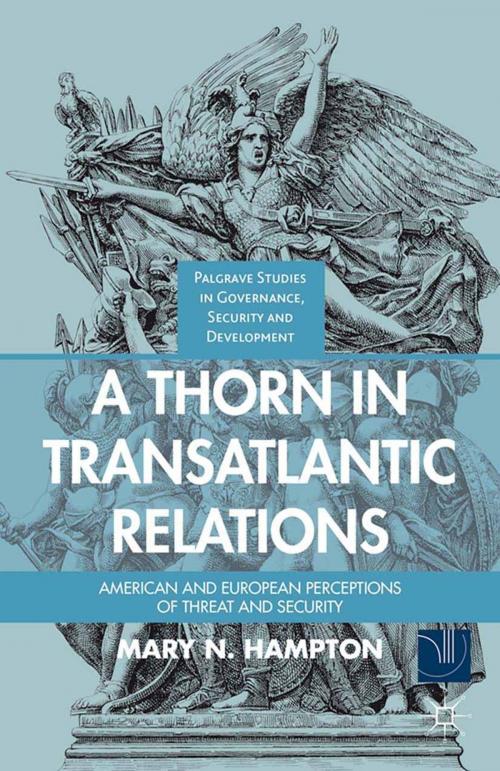A Thorn in Transatlantic Relations
American and European Perceptions of Threat and Security
Nonfiction, Social & Cultural Studies, Political Science, Government, Social Policy, International, International Relations| Author: | M. Hampton | ISBN: | 9781137343277 |
| Publisher: | Palgrave Macmillan US | Publication: | July 31, 2013 |
| Imprint: | Palgrave Macmillan | Language: | English |
| Author: | M. Hampton |
| ISBN: | 9781137343277 |
| Publisher: | Palgrave Macmillan US |
| Publication: | July 31, 2013 |
| Imprint: | Palgrave Macmillan |
| Language: | English |
Americans and Europeans perceive threat differently. Americans remain more religious than Europeans and generally still believe their nation is providentially blessed. American security culture is relatively stable and includes the deeply held belief that existential threat in the world emanates from the work of evil-doers. The US must therefore sometimes intervene militarily against evil. The European Union (EU) security culture model differs from traditional European iterations and from the American variant. The concept of threat as evil lost salience as Western Europe became more secularist. Threats became problems to manage and resolve. The upsurge in anti-immigrant and anti-foreigner sentiment in the midst of economic crisis undermines this model.
Americans and Europeans perceive threat differently. Americans remain more religious than Europeans and generally still believe their nation is providentially blessed. American security culture is relatively stable and includes the deeply held belief that existential threat in the world emanates from the work of evil-doers. The US must therefore sometimes intervene militarily against evil. The European Union (EU) security culture model differs from traditional European iterations and from the American variant. The concept of threat as evil lost salience as Western Europe became more secularist. Threats became problems to manage and resolve. The upsurge in anti-immigrant and anti-foreigner sentiment in the midst of economic crisis undermines this model.















